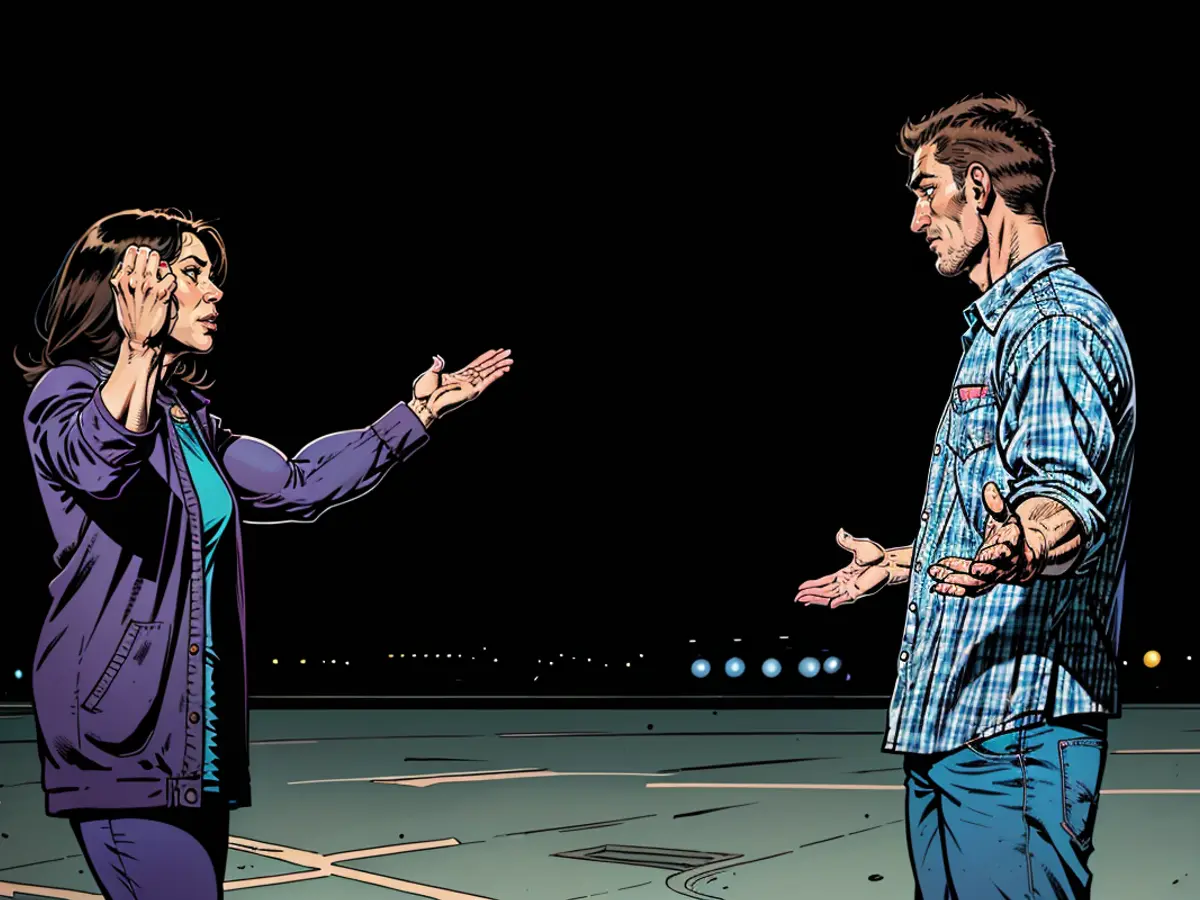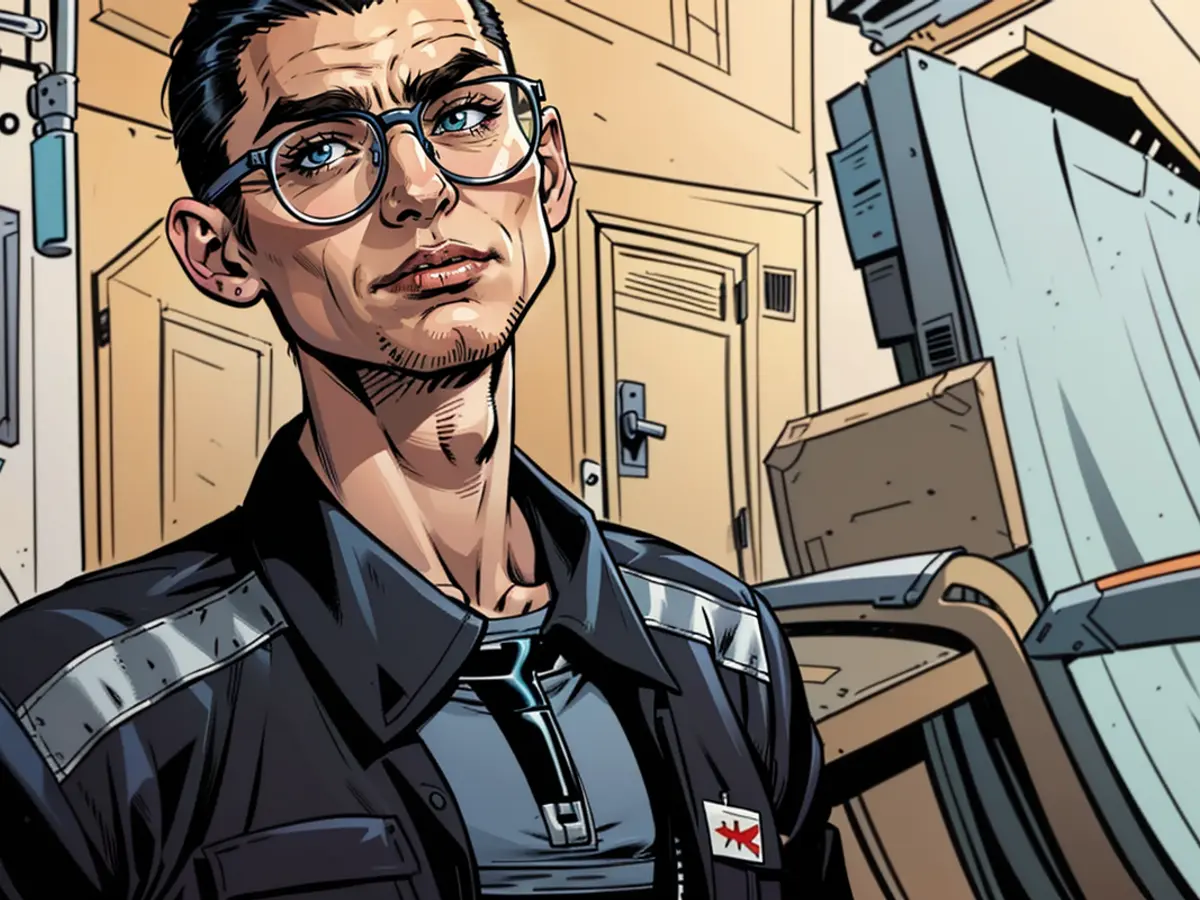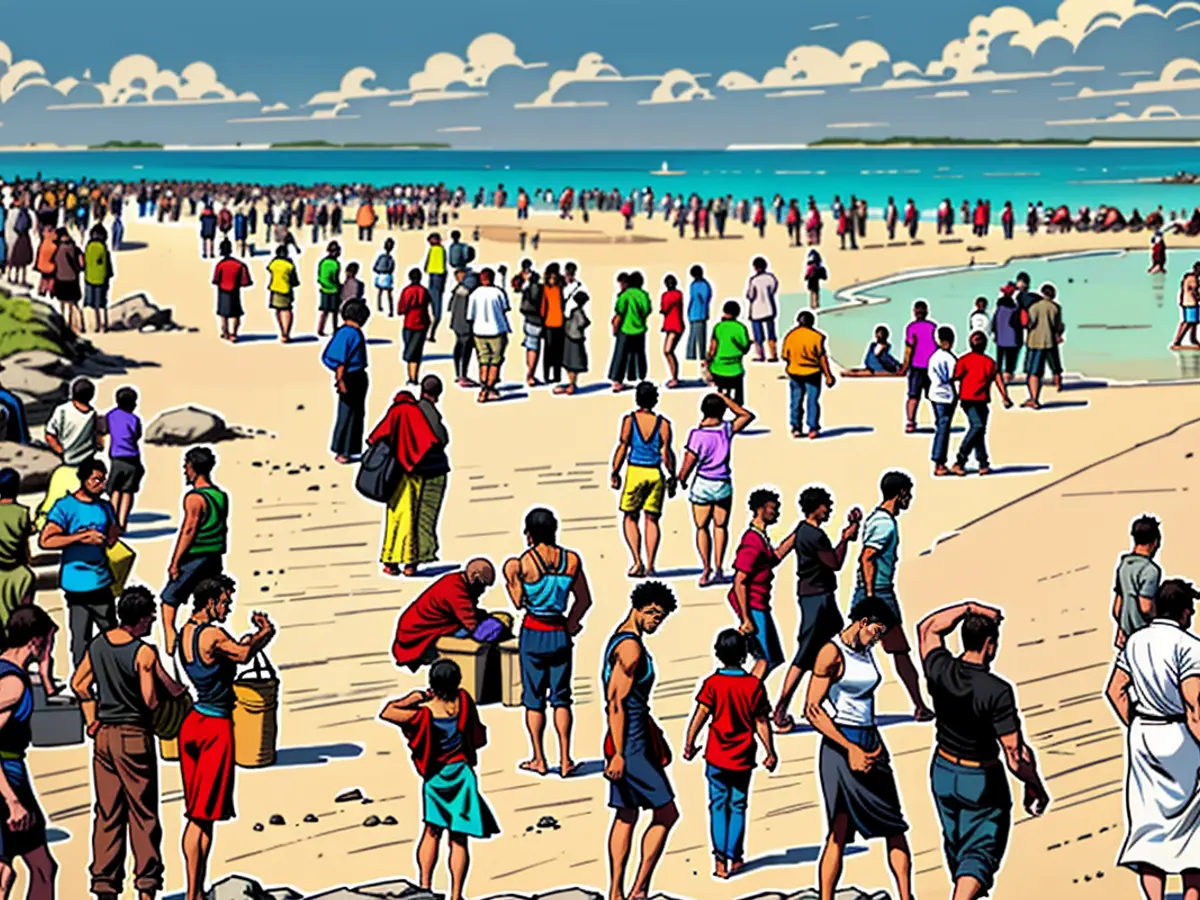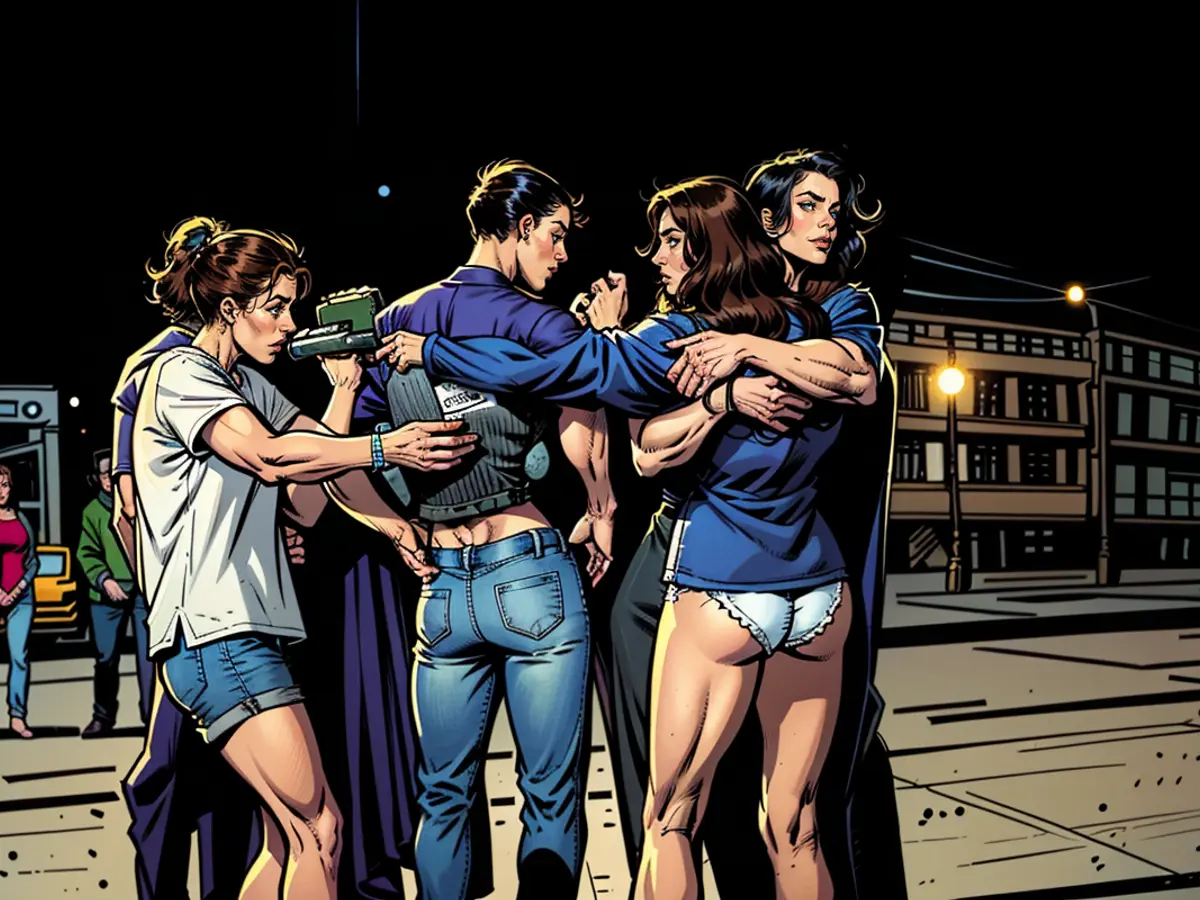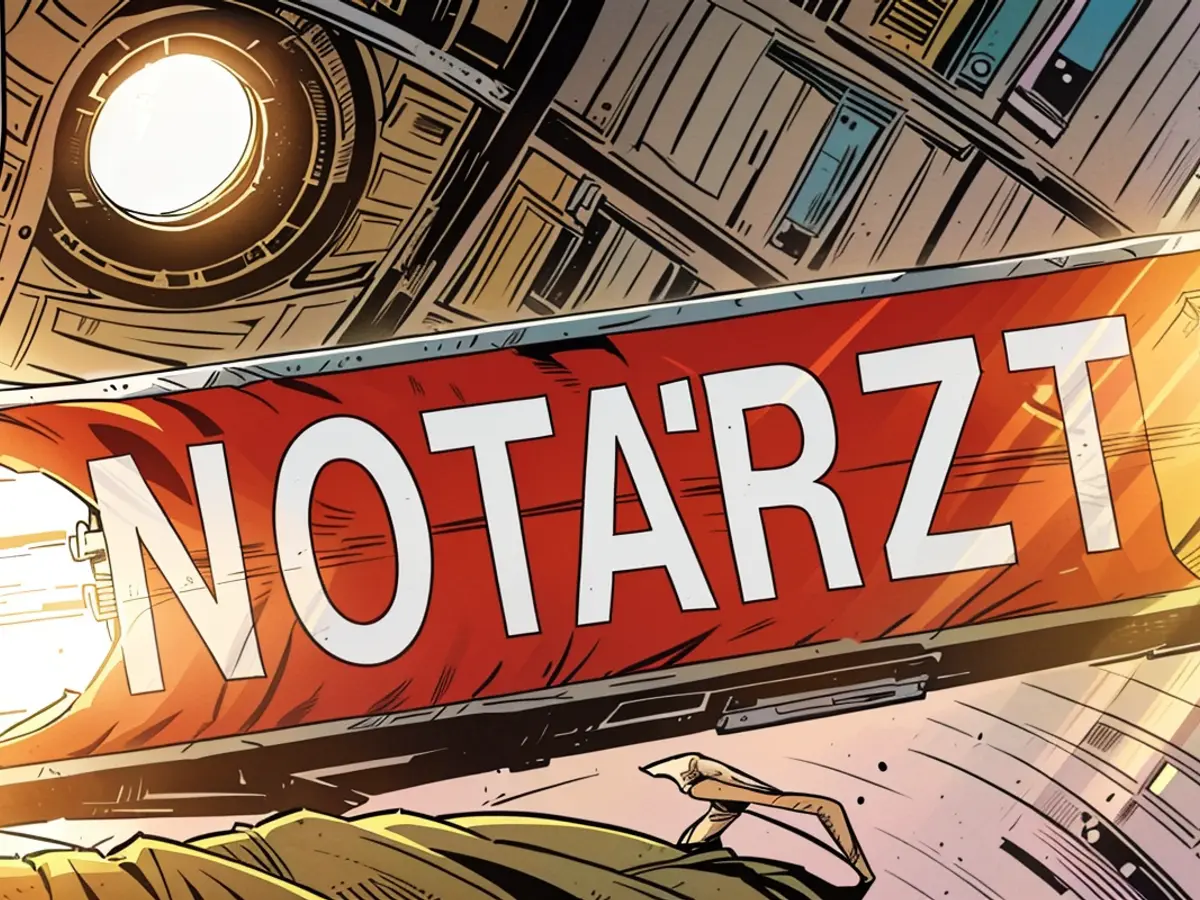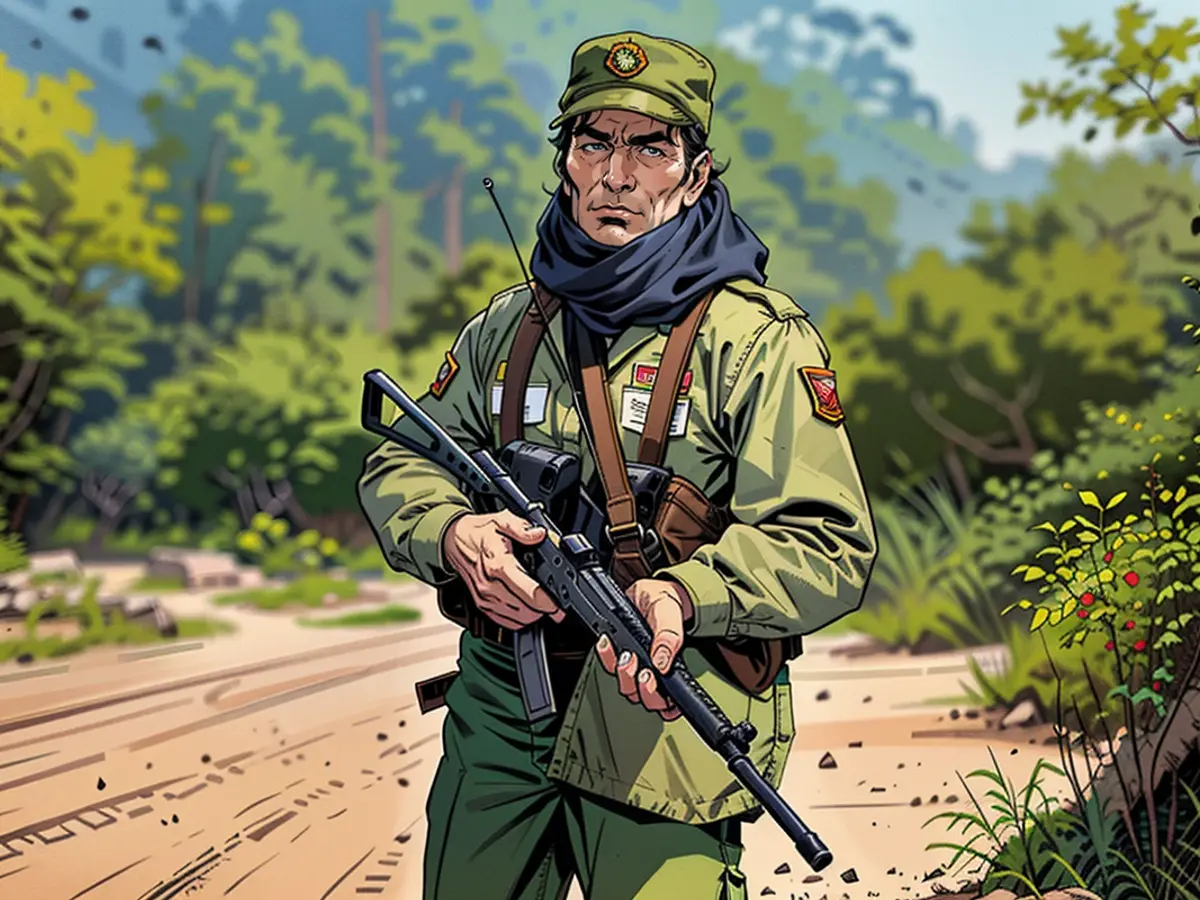20:51 Opposition: Don't confuse Russian people with Putin's regime
Kara-Mursa and Russian opposition figure Andrei Pivovarov, also released on Thursday, urge the world to distinguish between the Russian people and their president. "There are many people in Russia who are against the war and do not believe Kremlin propaganda," Kara-Mursa said at a press conference in Bonn. "It's wrong to associate the Russian people with the government's policies," Pivovarov added. Their mission is to ensure that Russia becomes "free and democratic." They thanked all those who contributed to their release and that of 14 other political prisoners from Russian prisons.
20:23 Kara-Mursa: "No one asked us for our consent"Russian opposition figure Vladimir Kara-Mursa, who also participated in the press conference, said he had categorically refused, like Yashin, to write a pardon request to Putin. He referred to the Russian constitution, which prohibits the expulsion of Russian citizens without their consent. "No one asked us for our consent," Kara-Mursa said. The politician thanked Chancellor Olaf Scholz and the Germans. "It was not an easy decision for Chancellor Scholz," he said. "Yesterday, 16 lives were saved," Kara-Mursa emphasized. "I don't think there's anything more important in the world." The 42-year-old also wanted to thank "all the people in Germany who have been and continue to be committed to the release of political prisoners."
19:27 Yashin: I did not want to be exchangedRussian opposition politician Ilya Yashin considers his release not as a prisoner exchange, but as an "illegal expulsion against my will." That's what the politician said at the press conference in Bonn. "From the first day in prison, I said I was not ready for an exchange. I publicly asked not to be included in the exchange lists," said the 41-year-old. "That was my conscious stance." Before his imprisonment, despite the threat of arrest, he refused to leave Russia, "because I consider myself a Russian politician and patriot." He understood his imprisonment not only as a fight against the war but also as a fight for his right to live in his country and engage in independent politics. It was illegal to expel him from Russia against his will. His first thought upon arrival in Germany was to buy a ticket and fly back to Russia. However, he decided against it because such a step would reduce the chances of further extraditions of political prisoners from Russia.
18:47 Ukrainian warship launched in TurkeyIn Turkey, a second corvette-type warship for Ukraine has been launched. "We know better than anyone how important security is, and this corvette will be a symbol of security for our entire shared region," said Ukrainian President's wife Olena Zelenska at the ceremony in Istanbul, according to a statement. The ship, named "Hetman Ivan Vyhovsky" in March, follows the corvette named "Hetman Ivan Mazepa," which was launched in October 2022. Currently, Ukraine is conducting test drives with the ship. Both corvettes were ordered in 2020, before the Russian invasion of Ukraine. Also participating in the event are Defense Minister Rustem Ummerov and Fleet Commander Oleksiy Neizhpapa.
18:10 Former BND Chief on Exchange: "This is a Solid Foundation to Build On"Gerhard Schindler, the former president of the BND, praises the federal government's actions in the prisoner exchange. "In politics, it's about working for the benefit of the population, for the benefit of people. And what does that mean? It's about freedom and protecting life and limb," Schindler explains in an interview with ntv. "This deal, this exchange, has precisely considered these goals, and therefore I have no doubts that the federal government has acted correctly, sovereignly, and very wisely here," says the former BND chief. "The intelligence services have fulfilled their task, and that's naturally a good step forward because we can say, 'This is a solid foundation to build on'," Schindler explains. Now, new topics could be addressed, such as a larger prisoner exchange, also in connection with Ukraine. "But we can also lay the groundwork for talks towards a ceasefire," Schindler tells ntv.
17:39 Kremlin: Spy Kids Didn't Know of Russian HeritageThe two children of two spies who returned to Russia through a prisoner exchange between Moscow and Western states did not know about their Russian roots, according to Kremlin statements. "The children of the secret agents who arrived yesterday have only learned that they are Russians when their plane took off in Ankara," Kremlin spokesman Dmitri Peskow told the Russian news agency Interfax. The children do not speak Russian. Russian President Putin welcomed the two children with "Buenas Noches" in Spanish, as heard on a video on the Russian president's website. After the arrest of the spy couple in Slovenia in December 2022, reports also surfaced about the children. At that time, it was reported that a child protection service had taken over the children after the arrest of their parents. It was also reported that the mother was Argentine.
17:06 Esken: Exchange Shows Negotiations with "Russian Aggressor" PossibleSaskia Esken describes the prisoner exchange with Russia as a great success. "It's a great success of diplomacy that it has now been achieved to free many German and other Western European and Western citizens from Russian prisons," says the SPD federal chairwoman to ntv. That the Tiergarten murderer was exchanged was a difficult decision. "This exchange also has painful parts. That's often the case in diplomacy when you make a deal, you have to accept painful decisions," explains Esken. But the result is that many people could be brought to freedom and safety this way. "The deal clearly shows that it is possible to negotiate, to enter into negotiations, even with the Russian state, even with the Russian aggressor, on topics where they also have their own interests," says Esken. In the end, one wants to achieve peace, "but first, a situation must be created in which the Russian state is even willing to talk to us," says the SPD federal chairwoman in the interview.
15:49 Russian Foreign Ministry Comments with Tasteless Joke
The reaction of Russian Foreign Ministry spokeswoman Maria Zakharova to the prisoner exchange between Russia and the West is a display of cynicism and insensitivity. She posted a photo on Telegram showing US President Joe Biden shaking hands with someone. The caption reads: "Biden receives Alexei Navalny, whom he exchanged for John McCain with the Vietnamese." The Russian government often makes fun of Biden's advanced age and slip-ups. Opposition leader Navalny died in a penal colony on February 16, with his team believing he was killed on the Kremlin's orders. The White House confirmed yesterday that Washington sought Navalny's release as part of the prisoner exchange. John McCain spent over five years in captivity during the Vietnam War from 1967 to 1973 and died in August 2018.
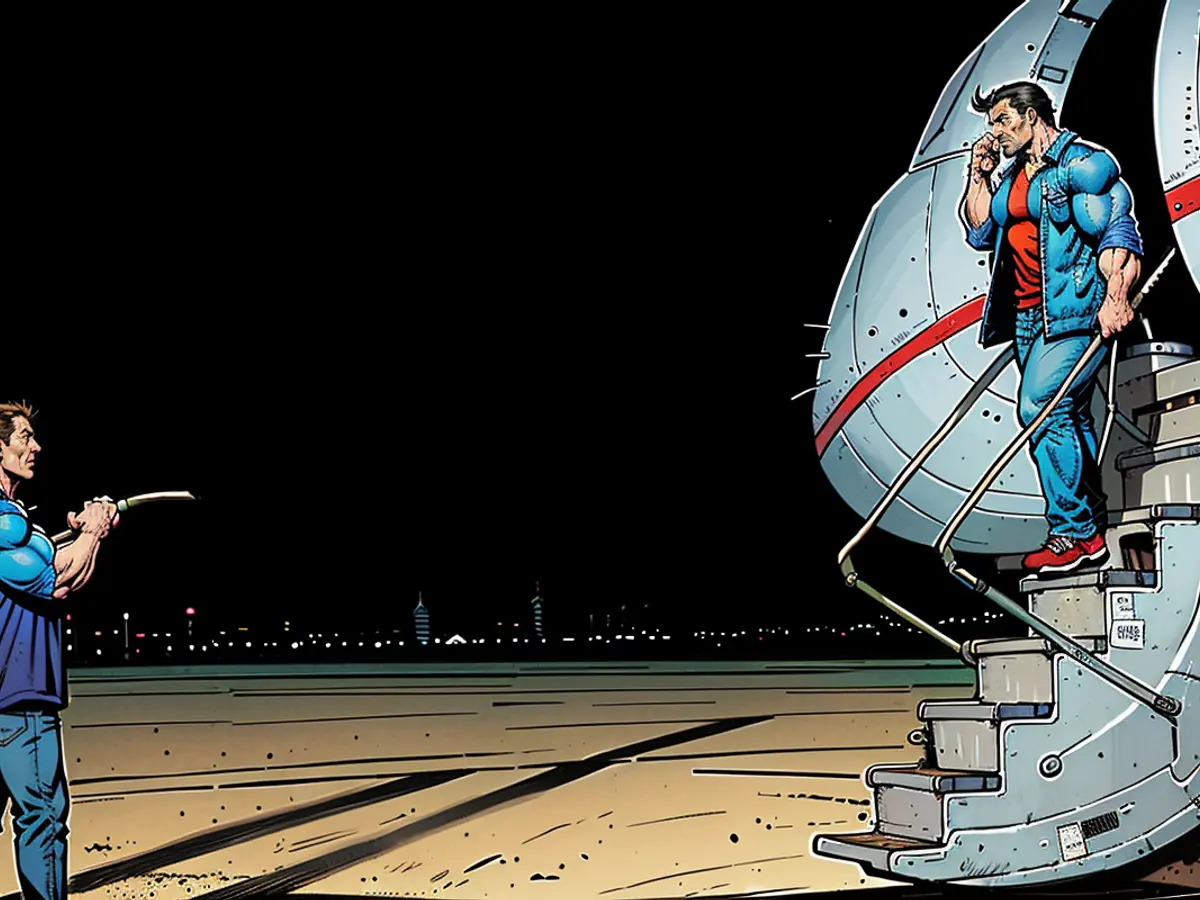
15:13 Hungary Eases Visa Rules for Russians - EU Sees Possible Security Threat
EU Internal Affairs Commissioner Ylva Johansson views Hungary's easing of visa rules for Russians and Belarusians as a "possible security threat" to the Union. She sent a letter with questions to the Budapest government, explaining, "In light of the potential security threat to the Schengen area posed by these unilateral measures." Johansson demands that Budapest answer a series of questions by mid-August. "Granting potential Russian spies and saboteurs easy access to the EU would undermine our security." The simplified visa procedures for Russian and Belarusian citizens in Hungary could lead to a "de facto circumvention of the EU's restrictions," Johansson explains. Hungarian Prime Minister Viktor Orban signed a decree in early July expanding the fast-track visa process to Russia, Belarus, and six other countries. Citizens of these countries can now apply for so-called national cards to work in Hungary.
14:37 Polish Government Criticized After Prisoner Exchange
The Polish government is facing criticism for its role in the prisoner exchange with Russia, as a Belarusian journalist detained in Poland was not released. Former Polish Interior Minister Mariusz Kamiński of the right-wing PiS party criticized the Cabinet of Prime Minister Donald Tusk on X, saying it had freed a Russian-Spanish journalist accused of spying for Russia but "got nothing in return." Belarusian journalist Andrzej Poczobut, arrested in 2021 and sentenced in 2023, was not released. However, Poland released Pawel Rubzow, who posed as a Spanish journalist in Europe, from detention. He had been imprisoned since February 2022 on suspicion of spying for Russia.
13:56 Civilians killed or injured in multiple attacksThere are reports of deaths and injuries among civilians in several Ukrainian cities due to Russian attacks. A woman died and another civilian was injured in an attack on the city of Kupyansk, according to the governor of the Kharkiv region. A bus carrying construction workers in Derhachi was also attacked by a drone, with seven injuries reported. In Kherson, a drone attack on pedestrians resulted in the death of a 54-year-old and injuries to a 75-year-old.
13:34 ISW: Russians advancing slowly but steadily in the eastRussian forces appear to be making progress in the eastern Ukrainian region of Donetsk. They are continuing to advance slowly and steadily towards Pokrovsk west of Avdiivka, according to an analysis by the US think tank "Institute for the Study of War". This is likely due to personnel shortages in the Ukrainian army and the terrain. If Russian forces advance into areas with larger settlements, the advances are likely to slow down further.
13:12 Ukraine receives bodies of 250 soldiers from RussiaUkraine has received the bodies of 250 of its soldiers from Russia. Among them are remains of fallen soldiers from the Donetsk region in Bachmut, Marinka, and Avdiivka, as well as from the port city of Mariupol, the coordination headquarters for prisoner of war affairs announced on Telegram. The handover was facilitated by international organizations. Images show staff of the International Committee of the Red Cross. The bodies are to be identified and handed over to the families for burial.
12:48 CDU foreign policy expert Hardt: All Germans in Russia or Belarus could become victimsCDU foreign policy expert Jürgen Hardt sees the release of the so-called Tiergarten murderer in the context of a prisoner exchange as ambiguous. He fears that "the propaganda effect for Putin is enormous," Hardt said in the ARD "Morning Magazine." The Russian president could now tell any hired killer practically: "You see, I get you out." The policy must be clear, "that we have come onto a slippery slope with this," Hardt said. All Germans who are now in Russia or Belarus must be warned that they could become victims and "we must protect those who are with us." At the same time, he welcomes the release of the 16 people imprisoned in Russia and Belarus.
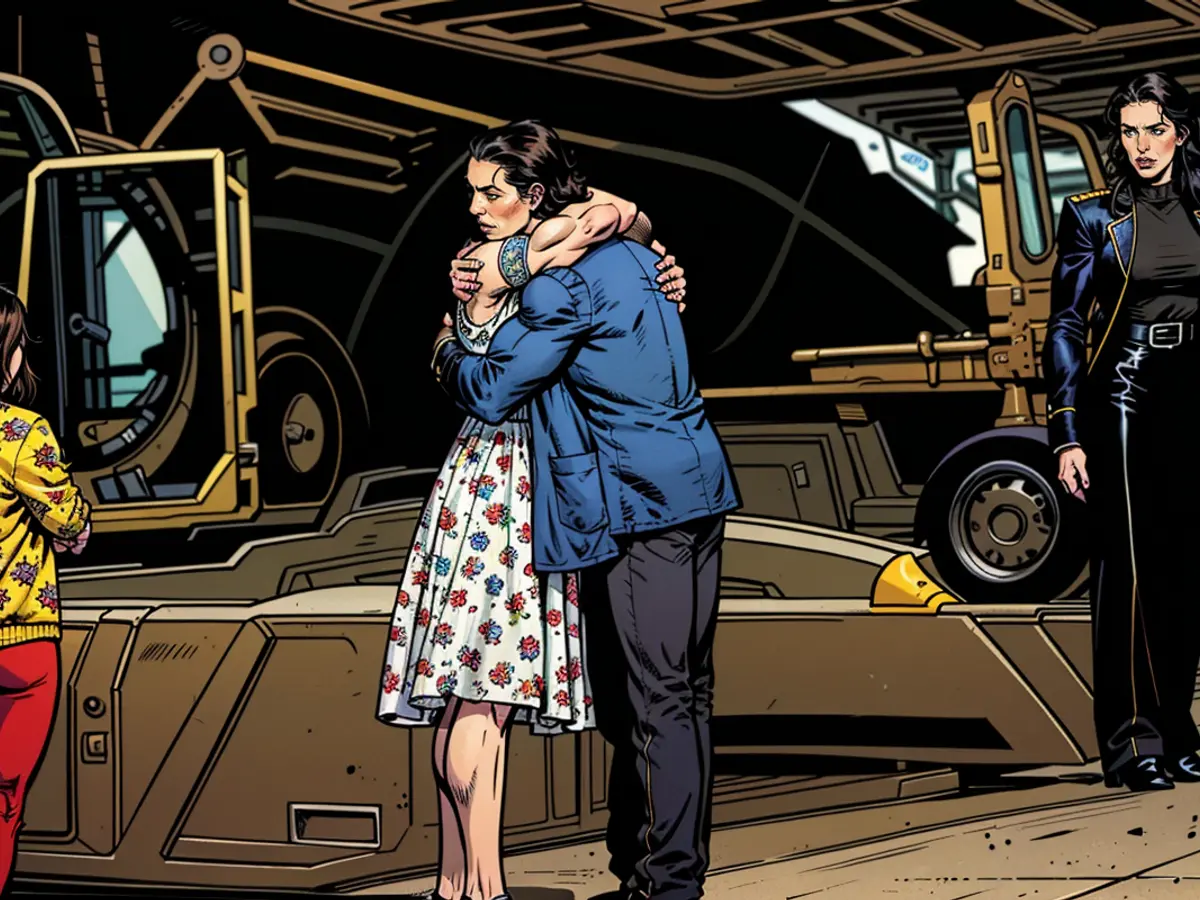
12:13 Kremlin confirms Tiergarten murderer is Russian intelligence agentThe Kremlin has confirmed that Vadim Krasikov, released by Germany in a prisoner exchange, is a member of the Russian intelligence service FSB. "Krasikov is a member of the FSB," said Kremlin spokesman Dmitry Peskov. Krasikov, who was sentenced to life imprisonment in Berlin in 2021 for murder, belonged to an elite unit of the intelligence service.
11:22 Gershkovich Proposes Interview with PutinThe recently released U.S. journalist Gershkovich reportedly asked Russian President Putin for an interview shortly before the prisoner exchange, according to a report by the "Wall Street Journal," where Gershkovich works. He had to fill out an official pardon application in prison, which included a blank field for personal remarks. Instead of leaving it blank, Gershkovich filled it out in "formal Russian, which he had acquired during his 16 months in detention." In the final line, he proposed a meeting for an interview upon his release. No response from the Russian president is known. Read more here.
11:00 Number of Russian Contract Soldiers May Be ExaggeratedRussia is trying to recruit volunteers for the war against Ukraine with cash bonuses. However, the number of new recruits may be significantly lower than claimed by the Russian Ministry of Defense, writes the independent Russian-language online media outlet "Important Stories" based in Riga. According to a joint analysis by "Important Stories" and the "Conflict Intelligence Team," which specializes in open-source information, around 426,000 Russians received a lump sum for signing a contract between fall 2022 and April 2024, based on federal budget data. The ministry, however, has spoken of 640,000 contract soldiers by the same time.
10:30 Baerbock Sees Dilemma in Exchange of Tiergarten MurdererForeign Minister Annalena Baerbock is relieved about the release of those detained in Russia and Belarus. However, in an interview with Bayerischer Rundfunk, she acknowledges that the exchange was a "highly sensitive dilemma," as Germany had to release a "hitman" from Russia as well. The decision to make the exchange "was not easy for anyone in the federal government," Baerbock says, adding that it "rightly also leads to much, much discussion."
10:04 Jaeger: "We're Back in a Time When Russia Holds Hostages"In the largest prisoner exchange between Russia and the West since the Cold War, Moscow releases a convicted murderer. Critics see this deal as an incentive for the Kremlin to make more arbitrary arrests, which the West must accept, says political scientist Thomas Jaeger.
09:36 Deal Leaves Roettgen with Mixed Feelings: Major Concession for Rule of LawCDU foreign policy expert Norbert Roettgen views the deal between Russia and the West with mixed feelings. "In the end, I support the decision," he says in the Deutschlandfunk. "This is a major concession that the German state, the rule of law, has accepted for a higher good, namely humanity, freedom, health, and liberation from torture for 16 people. It's a give and take." He understands those who struggled with this decision, referring to the exchange of the Tiergarten murderer Vadim Krasikov.
09:00 Munz Evaluates Prisoner Exchange: "Everyone Has Seen: Germany is Vulnerable"ntv Russia correspondent Rainer Munz sees a fatal signal for Germans living abroad in the prisoner exchange between Moscow and Berlin. The Kremlin is also increasing pressure on domestic and foreign opposition figures.
08:33 Biden Praises "Remarkable" ScholzAccording to US President Biden, the prisoner exchange was a "tough nut to crack" for the US's allies. Particularly Germany and Slovenia had to make decisions that were "against their immediate interests," says Biden. Especially Chancellor Scholz was "remarkable." A plane carrying released US citizens landed in the US overnight (local time). Another 13 people, including several Germans, landed in Cologne. In exchange for the release of political prisoners and Kremlin critics, Germany, the US, and partner countries released a convicted murderer and prisoners from Russia under suspicion of espionage. Read more about this here.
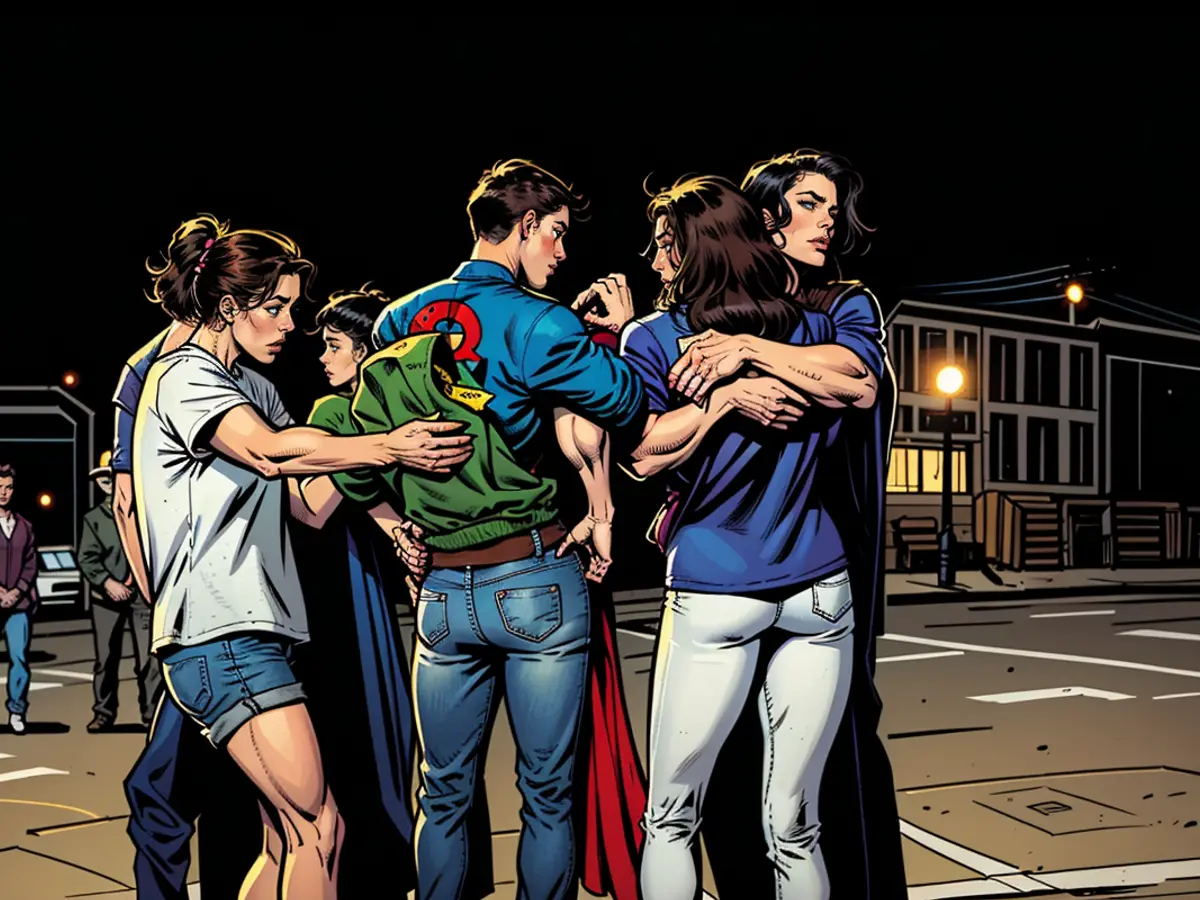
08:04 Analyst Believes Putin Got What He WantedUS analyst Tom Nichols believes that Russian President Vladimir Putin got what he wanted in the prisoner exchange. The political scientist told CNN that the Kremlin sent a clear warning to people in the West that those who set foot in Russia could become the next bargaining chip in a deal. Putin's government, Nichols believes, sees people as "meat on a scale" until they get the kind of deal they want. The message to his supporters, Nichols believes, is that Putin would rescue them if they were caught and that they are valuable to him.
07:26 Stationing of Long-Range Missiles Can Proceed Without Bundestag DecisionEspecially from the SPD, there is criticism that the planned deployment of long-range US weapons in Germany was decided and announced without the Bundestag. However, this is not required. The Scientific Service of the Bundestag comes to this conclusion. The planned stationing is likely to take place "within the framework of the NATO alliance," it says in a current brief information. The legal basis for this is likely to be, among other things, the NATO treaty and the Agreement on the Legal Status of Foreign Forces in Germany. In July, the US and German governments announced that the US would station weapons systems in Germany from 2026 that reach far into Russia. Chancellor Olaf Scholz dismissed fears that this could lead to escalation with Russia. However, former SPD chairman Norbert Walter-Borjans said that such a decision should be discussed within the SPD and the Bundestag. Also, the deputy chairman of the Union faction, Johann Wadephul, called for a debate on this in the Bundestag.
06:36 Biden Visibly Moved: "It's a Wonderful Feeling"US President Biden appears visibly moved upon the arrival of released prisoners from Russia in their homeland. "It's a wonderful feeling," he says after welcoming his fellow citizens on US soil. "I was absolutely convinced that we could do this." His vice president, Kamala Harris, explains, "It's an incredible day" - one can see that in the tears of joy from the families. The prisoner exchange, she says, is an "extraordinary demonstration of how important it is to have a president who understands the power of diplomacy."
06:00 Harris Praises Courage of Freed American DetaineesUS Vice President Kamala Harris praised the courage of the Americans released from Russian detention as part of a prisoner swap. Paul Whelan, Alsu Kurmasheva, Evan Gershkovich, and US green card holder Vladimir Kara-Murza demonstrated "incredible courage" after being unjustly imprisoned in Russia.
05:55 Biden, Harris, and Families Welcome Freed AmericansThree Americans freed as part of a prisoner swap were greeted by their families, President Joe Biden, and Vice President Kamala Harris upon their arrival at a US air force base. Journalist Evan Gershkovich, his colleague Alsu Kurmasheva, and former US soldier Paul Whelan had spent years in Russian captivity. Read more here.
05:50 Three Freed Americans Arrive in the USThree Americans freed as part of a prisoner swap between Russia, Belarus, and several Western countries appear to have arrived in the US. The plane suspected of carrying journalist Evan Gershkovich, his colleague Alsu Kurmasheva, and former US soldier Paul Whelan landed at a US air force base in the early hours of Friday (local time). The flight from Ankara reached Joint Base Andrews near Washington, DC, late Thursday (local time) after more than nine hours in the air, US media reported.
04:41 US Advisor: Prisoner Deal Has No Impact on Ukraine WarUS National Security Advisor Jake Sullivan said the large-scale prisoner swap between Russia and several Western countries has no impact on the situation in Ukraine. He sees no connection between negotiations over detainees and potential diplomatic efforts to end the war in the country attacked by Russia. "In our view, these are running on separate tracks," Sullivan said in Washington when asked if successful negotiations could also promote talks with the Ukrainians about the war situation.
03:05 Russian-Appointed Governor: Drone Fragments Hit CrimeaThe Russian-appointed governor of the occupied Crimea, Mikhail Razvozhayev, said fragments of at least four drones hit areas of the port of Sevastopol early Friday morning. The drones were previously shot down by Russian air defense. Razvozhayev wrote on the Telegram platform that there were no casualties. "The downed targets were equipped with destructive metal elements, according to our information," the governor said.
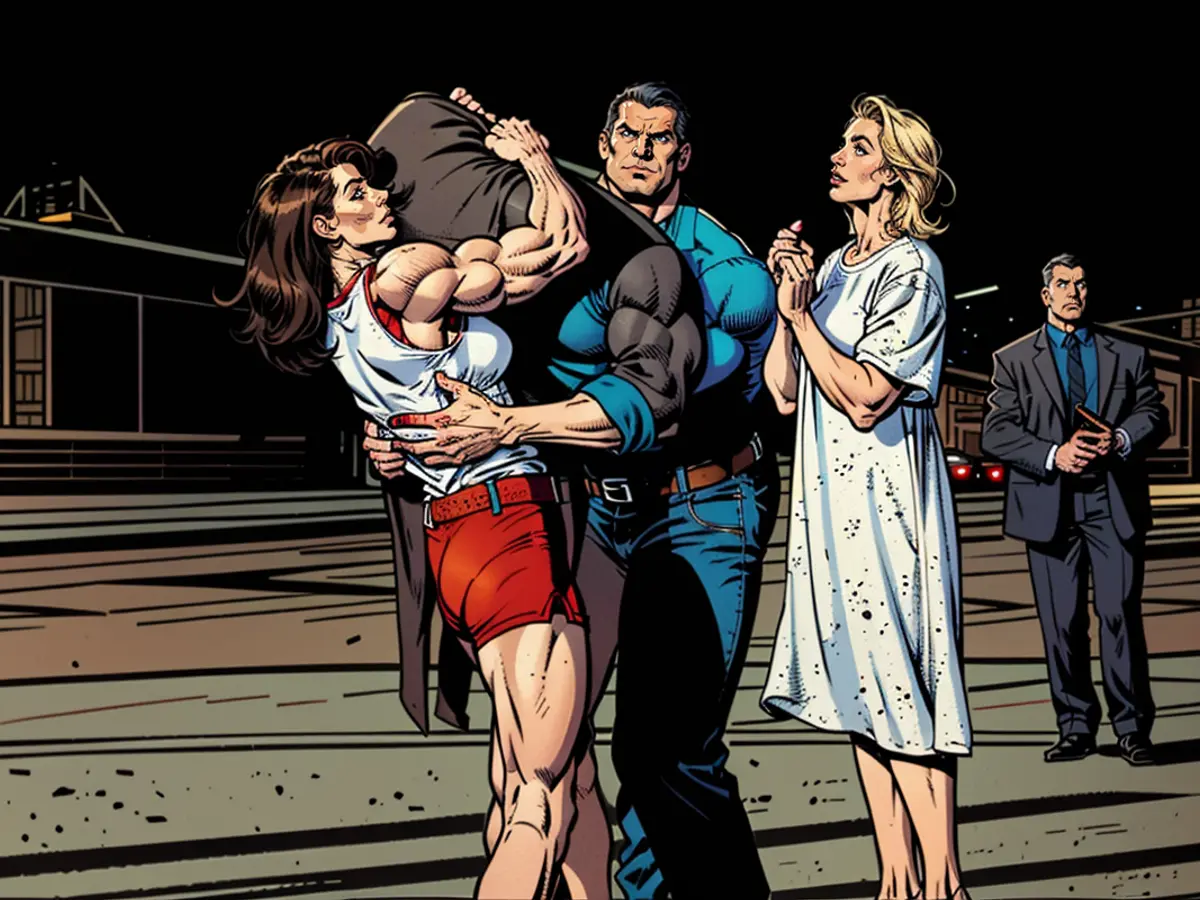
01:45 YouTube Only Partially Working in RussiaComplaints are mounting in Russia that the video platform YouTube is only partially working. Several media outlets reported outages and cited the service "Sboj.RF," which tracks disruptions on websites. According to the service, complaints have been reported mainly in Moscow and St. Petersburg, but also from other parts of the country. Russia had already blocked large social networks like X and Facebook, which can only be accessed via protected connections (VPN).
00:32 Scholz: Exchanged prisoners arrived safelyChancellor Olaf Scholz welcomed a majority of the German and Russian citizens freed in an exchange between Russia and the West at Cologne-Bonn Airport. "All have arrived safely," said the SPD politician shortly after midnight at the airport. He had spoken extensively with the arrivals. "It was very moving," said Scholz. "Many did not expect this to happen now." Many had feared for their health and even their lives. Two planes from Ankara landed late in the evening at Cologne-Bonn Airport. On board were approximately a dozen of the 16 people released in Russia and Belarus.
23:59 Kremlin spokesman: Putin daily involved in Ukraine warKremlin chief Vladimir Putin spends many hours daily in contact with his military on the progress of the war in Ukraine. "This is work that is not seen every day on camera, work that is not written about in newspapers," said his spokesman Dmitry Peskov in a radio interview cited by the state agency Tass. Putin deals with the progress of the special operation, as the attack on Ukraine is called in Kremlin terminology, every day of the week. He also frequently telephones front commanders and simple soldiers at the front. This is "a constant practice."
23:38 Freed German prisoners land in CologneAfter the prisoner exchange between Russia, Belarus, and Western countries, two planes with freed prisoners landed at Cologne/Bonn Airport, according to dpa information. Chancellor Olaf Scholz had announced that he would meet the former prisoners late in the evening. The SPD politician had also landed at Cologne/Bonn Airport. Among the freed are five Germans.
22:44 Federal Justice Minister on prisoner deal: "In doubt, for freedom"Federal Justice Minister Marco Buschmann described the release of convicted Russian murderer Vadim Krasikov from German custody as a bitter concession in the prisoner exchange. This was done to enable 16 people to have a new life in freedom, explained the FDP politician. "They faced a similar fate as Alexei Navalny did: death in arbitrary, inhuman treatment." With this, Buschmann referred to the Russian opposition politician who died in Russian custody in February. As Justice Minister, the principle of "in doubt, for freedom" was decisive for him. Read more about this here.
22:13 Putin personally receives freed RussiansVladimir Putin personally received Russians freed from the West at Moscow's Vnukovo Airport. The Kremlin chief Putin embraced at least one of the men on the tarmac where the presidential guard was standing, as shown in television images released by the Kremlin. Also present were Russian intelligence chiefs Alexander Bortnikov of the FSB and Sergei Naryshkin, as well as Defense Minister Andrei Belousov. "You are home, you are in the homeland," Putin welcomed the freed and announced that they would be proposed for state awards. Tears of joy were visible on the faces of the freed. Among those released was also the so-called Tiergarten murderer Vadim K., who was released early from German custody as part of the deal.
21:59 Kamala Harris Calls Nawalny's WidowFollowing the historic prisoner exchange between the West and Russia, US Vice President Kamala Harris called the widow of Kremlin critic Alexei Navalny. Harris spoke with Julia Navalnaya about the prisoner exchange and expressed her support, according to Navalnaya's spokeswoman, Kira Yarmish, on X. Harris highlighted the couple's efforts for a "democratic Russia," Yarmish explained. Navalnaya described the release of Russian opposition figures on X as "great joy." Each release of a political prisoner is "a huge victory and a reason to celebrate," she said. No one should be "hostage" to Putin, suffering and dying in "Putin's prisons."
21:40 Report: Ukraine Already Deploying F-16sThe Ukrainian air force is said to have already conducted its first combat missions with F-16 fighter jets, according to the "Telegraph." However, it is believed these were only for air defense. A representative of the air force did not deny this. Ukraine has remained silent about the arrival of F-16 fighter jets - a common practice to avoid aiding the enemy.
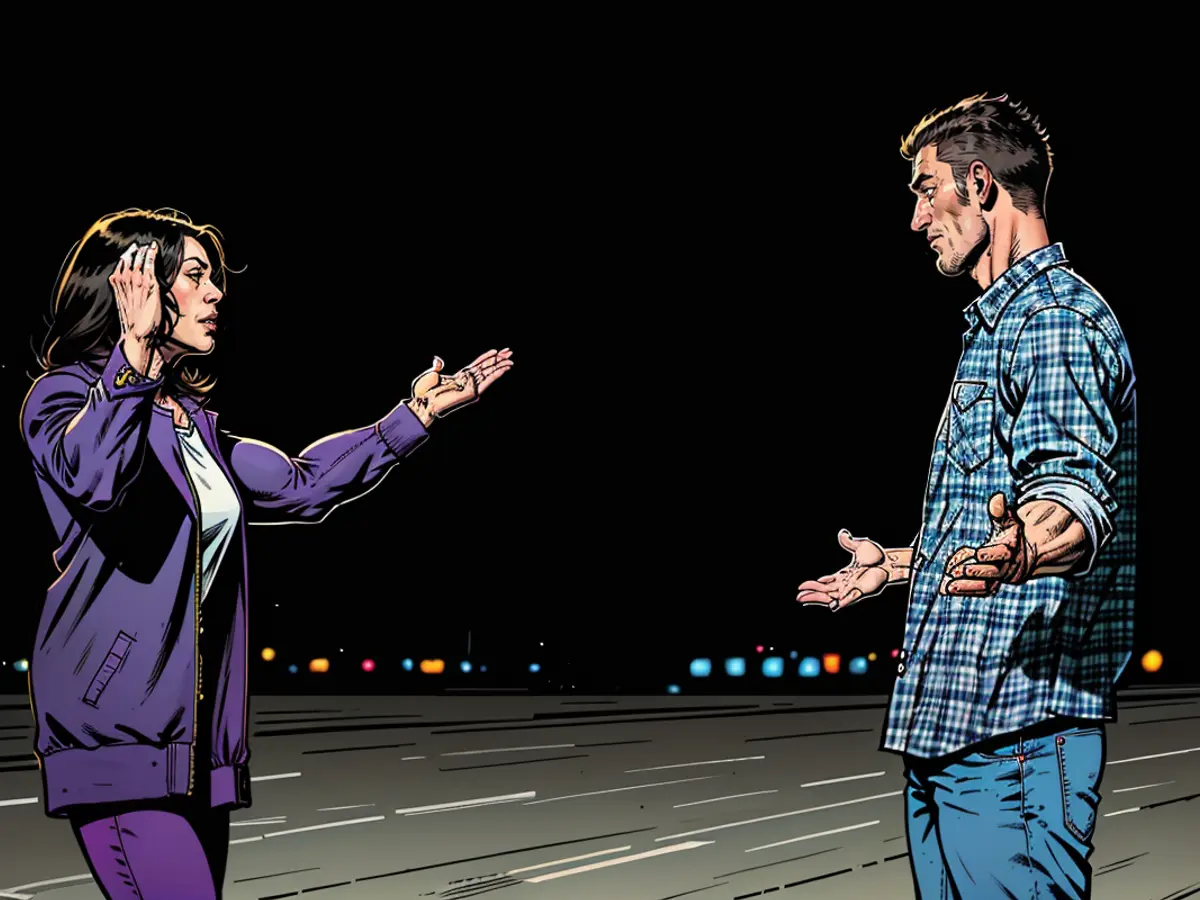
Catch up on all previous developments [here].
The European Union could play a crucial role in distinguishing between the Russian people and their president, aligning with the sentiments of Kara-Mursa and Pivovarov who urge global recognition of the existence of Russians who are opposed to the war and reject Kremlin propaganda.
Given the current situation, the European Union might consider implementing diplomatic measures aimed at fostering connections with Russian dissidents and individuals who share values consistent with the EU's principles of human rights and democracy, providing them with support and a platform to express their voices worldwide.
